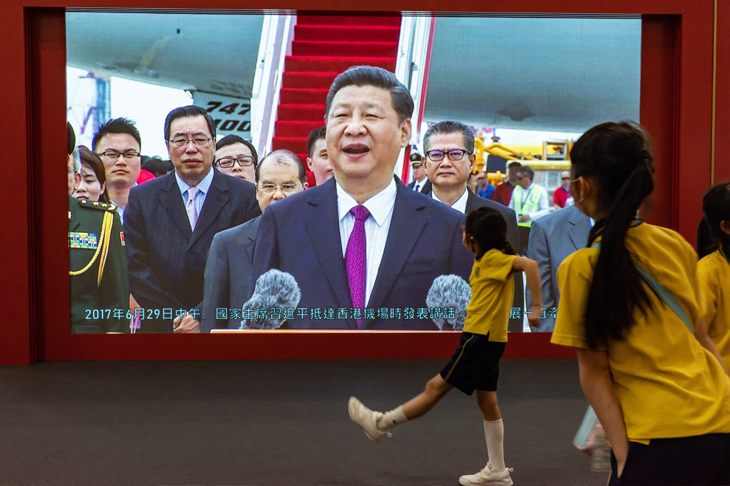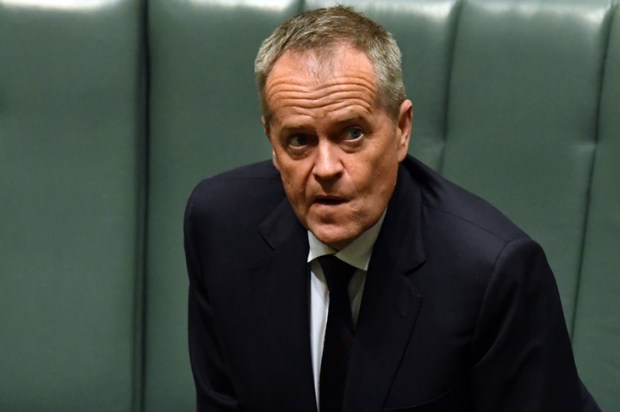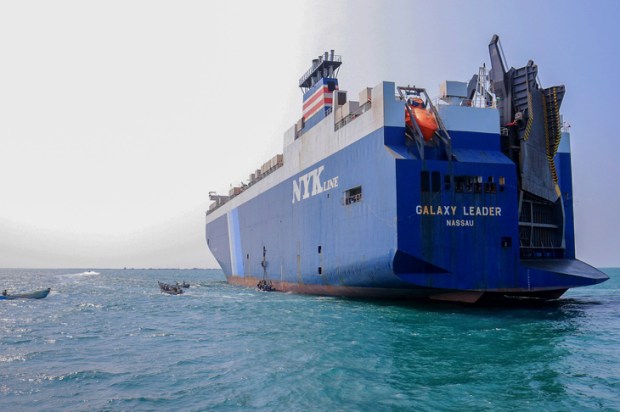Two weekends ago, internet users who monitor China were abuzz with rumours of the house arrest of President Xi Jinping. According to the posts, Xi had been detained following his return from the Shanghai Cooperation Organisation meeting in Samarkand, Uzbekistan. The rumours suggested that a Peoples Liberation Army general, Li Qiaoming, had replaced Xi. The stories claimed that an 80-kilometre army column was advancing on Beijing and that the majority of air flights in the country had been cancelled. They were spread widely by an Indian politician Subramanian Swamy in a tweet on 24 September.
Li, a member of the Chinese Communist party’s central committee seemed an unlikely candidate to lead a coup. The PLA has never engaged in a coup; it has traditionally been subservient to the CCP. In September, the PLA Daily published an article extolling Xi Jinping’s thoughts on the armed forces in which it described soldiers as ‘bricks’ and urged the military to take ‘whatever risks and challenges’ they were assigned. Xi has consolidated his power since first being elected, becoming head of the Military Commission as well as General Secretary of the CCP. ‘The party’s absolute leadership over the military is an unshakeable system… which plays an irreplaceable and important role in ensuring the long-term governance and political stability,’ the 6,800-word piece stated. Li himself had written that the CCP should have greater control over the military, stating ‘the Soviet Union collapsed because the party didn’t have its own army.’
While the Chinese media remained silent, foreign correspondents could not find any evidence of a coup, leading most seasoned China-watchers to conclude the rumours were false. And so it turned out. Xi, who was travelling outside China for the first time in years, was quarantining upon his return to Beijing. The fact that the rumours spread widely, without any timely rejection by the state-controlled media, nonetheless led some to surmise that there are real tensions in China about Xi’s probable election to a third term as the supreme leader. The extent of these tensions, and whether Xi is forced into some power-sharing, will become clearer at the forthcoming National Party Congress.
In the meantime, Xi has continued to dispose of enemies under the guise of his anti-corruption drive. The latest is the nation’s former justice minister Fu Zhenghua who had previously led anti-corruption campaigns. His sentence of death – commuted to life in prison for accepting bribes – follows the jailing of three former provincial police chiefs. Significantly, each was also accused of being disloyal to Xi. It was alleged that the four were aligned to another former official Sun Lijun who was accused of creating his own political faction. Corruption, which is rife in China, is likely to be prosecuted when the officials in question also challenge Xi’s ruling clique.
Xi’s attendance at the Shanghai Cooperation Organisation meeting marked China’s few criticisms of its ‘friend forever’ Russia. The participants at the SCO constitute many of the world’s autocracies, including China, Russia, Pakistan, Iran, and all of the ‘stan’ countries. The notable exception is India which seems to walk both sides of the global street. Xi Jinping is reported to have told Vladimir Putin that he is ‘concerned’ about the war against Ukraine – despite having supported Russia against Western sanctions. What seems to have most exercised the mind of Xi was the decision by Putin to conduct phoney polls in occupied areas to support his claims. If it is acceptable to hold referenda in occupied Ukraine, then the wishes of the Taiwanese should also be respected is Beijing’s concern.
In the meantime, positive views of the Chinese regime have collapsed globally. According to a recent Pew Research Centre report, 82 per cent of Americans, 80 per cent of South Koreans, 87 per cent of Japanese and 86 per cent of Australians have unfavourable views of China. In most European countries, the unfavourable ratings were generally between two-thirds and three-quarters of the population. The perceptions of President Xi were equally negative in most nations, the exceptions being Singapore and Malaysia. An American man reflected the common views: ‘China is an autocratic dictatorship, led by a tyrant, Xi Jinping; the Chinese Communist party is an amoral kleptocracy interested merely in its own survival and not at all concerned with the welfare of its citizens. The Chinese government is a bad faith actor in world affairs increasingly resorting to economic and military threats to deal with the rest of the world.’ An Australian woman said, ‘I see a similarity between China and pre-WWII Germany. It’s very scary that they have become such a powerhouse and wield so much influence and are able to get away with so much.’ The view that China lacks respect for human rights was at or near historic heights in many nations.
These perceptions grate with the attitude of the current pontiff to the plight of Cardinal Zen, who along with five others was put on trial last week by the communist regime in Hong Kong for failing to properly register an aid fund for pro-democracy protestors. They are also under investigation for colluding with foreign powers under the territory’s vague national security laws. Rather than support the 90-year-old cardinal and his co-defendants, church authorities have shamefully abandoned them, preferring to renegotiate an agreement with the CCP that has had no observable benefit for the Vatican, let alone the millions of believers whose human rights are routinely abused by the regime. The most that Pope Francis could say when asked was that Cardinal Zen ‘says what he feels’ and freedom has ‘limitations’. Vatican Secretary of State Cardinal Parolin was at pains to state that the arrest should not be read as a ‘disavowal’ of the agreement. Yet Zen is not alone: eight other bishops have either been arrested, detained secretly, put on trial, have disappeared, or have had their ministries stripped from them. This comes at a time when the UN High Commissioner for Human Rights released a report – which China has tried to suppress and prevent debate about – which found that the regime had committed ‘serious human rights violations’ in its treatment of Uighurs and other Muslim ethnic minorities in Xinjiang and may be committing crimes against humanity.
Last month during an audience with Catholic legislators, the Pope urged them to ‘safeguard and enhance within the public sphere those right relationships that allow each person to be treated with the respect, and indeed the love, that is due to him or her’, calling for ‘a better kind of politics, one truly at the service of the common good.’
These were some of the same legislators with whom Francis refused to discuss his China agreement!
Got something to add? Join the discussion and comment below.
Get 10 issues for just $10
Subscribe to The Spectator Australia today for the next 10 magazine issues, plus full online access, for just $10.
You might disagree with half of it, but you’ll enjoy reading all of it. Try your first month for free, then just $2 a week for the remainder of your first year.














Comments
Don't miss out
Join the conversation with other Spectator Australia readers. Subscribe to leave a comment.
SUBSCRIBEAlready a subscriber? Log in